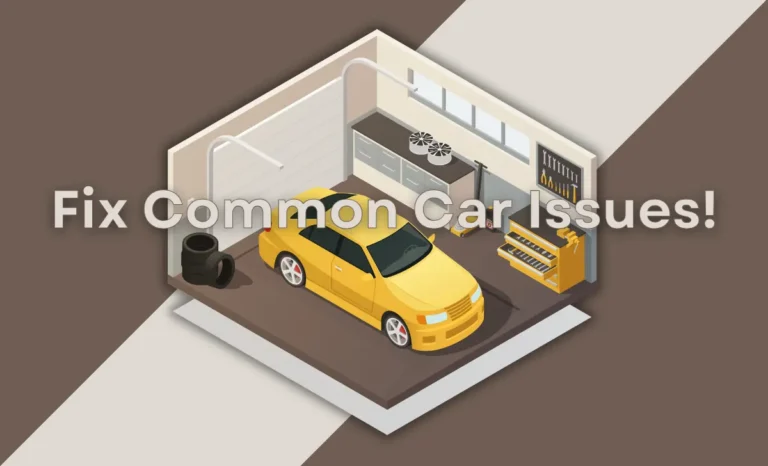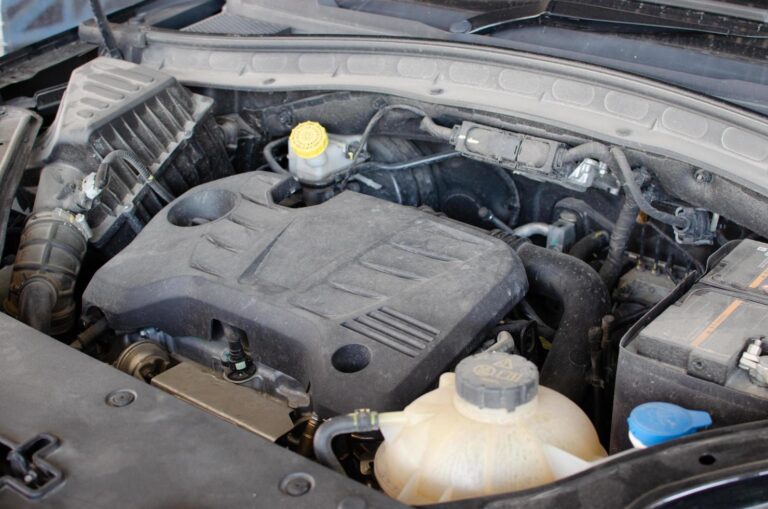
How to Store a Car Safely Long Term: Tips & Guidelines
Storing a car for a long time can be a daunting task, especially if you are not familiar with the process. Whether you are storing your car for a few months or a year, it is important to take the necessary precautions to ensure that your vehicle remains in good condition. In this article, we will provide you with some tips on how to safely store your car for a long time.

One of the most important things to consider when storing your car is the location. Ideally, you should store your car in a garage or a covered area to protect it from the elements. If you do not have access to a garage, you may want to consider renting a storage unit. It is important to choose a location that is dry and well-ventilated to prevent moisture from accumulating inside the car.
In this article
Another important consideration is the condition of your car before storage. You should clean your car thoroughly and remove any debris or dirt that may have accumulated on the exterior. You should also check the fluids and top them off if necessary. It is also a good idea to change the oil and filter before storing your car. By taking these steps, you can help ensure that your car is in good condition when you are ready to use it again.
Choosing the Right Storage Location
When it comes to storing your car for a long period of time, choosing the right storage location is crucial. Here are some important factors to consider:
Indoor vs Outdoor
An indoor storage location is generally preferable to an outdoor one. This is because indoor storage protects your car from the elements, such as rain, snow, and hail, which can cause damage to the exterior of your car. Indoor storage also protects your car from extreme temperatures, which can cause damage to the engine, battery, and other parts.
Climate-Controlled Environments
If you live in an area with extreme temperatures, consider storing your car in a climate-controlled environment. These environments are designed to maintain a consistent temperature and humidity level, which can help prevent damage to your car’s interior and exterior. Additionally, climate-controlled environments can help prevent rust and corrosion, which can be caused by moisture in the air.
Security Considerations
When choosing a storage location, security should be a top priority. Look for a storage facility that has 24-hour surveillance, reliable alarm systems, and good lighting. Additionally, consider a facility that has security personnel on-site. This can help deter theft and vandalism, and provide peace of mind while your car is in storage.
Overall, choosing the right storage location is essential to ensuring that your car is safe and protected during long-term storage. By considering factors such as indoor vs outdoor storage, climate-controlled environments, and security considerations, you can find a storage location that meets your needs and gives you peace of mind.
Preparing Your Car for Storage
When storing your car for an extended period, it’s important to properly prepare it to avoid damage and costly repairs down the road. Here are some key steps to take to prepare your car for storage.
Cleaning and Detailing
Before storing your car, it’s important to give it a thorough cleaning both inside and out. This will help prevent dirt, dust, and other debris from building up and potentially causing damage. We recommend washing and waxing the exterior of your car to protect the paint, and cleaning the interior to remove any food, trash, or other debris that could attract pests.
Fluids and Lubricants
It’s important to check and top off all of your car’s fluids before storing it for an extended period. This includes the oil, coolant, brake fluid, and transmission fluid. Additionally, it’s a good idea to lubricate any moving parts to prevent them from seizing up during storage.
Battery Maintenance
One of the most important things to consider when storing your car for a long time is the battery. If left unchecked, a battery can lose its charge and potentially even freeze, causing damage. We recommend disconnecting the battery and storing it separately, or using a battery tender to keep it charged while in storage.
Fuel Stabilization
If you plan on storing your car for more than a few months, it’s important to stabilize the fuel to prevent it from going bad. This can be done by adding a fuel stabilizer to the tank before storage. Be sure to fill up the tank before adding the stabilizer to ensure that it is properly mixed. It’s also a good idea to run the engine for a few minutes after adding the stabilizer to ensure that it circulates throughout the fuel system.
Covering and Protecting Your Car
When storing your car for an extended period, it’s important to take measures to protect it from the elements and potential damage. Here are some tips to help you cover and protect your car during long-term storage.
Car Covers
Using a car cover is an effective way to protect your vehicle’s paint job and interior from dust, dirt, and other debris that can accumulate over time. When choosing a car cover, make sure it fits your car properly and is made from a breathable material to prevent moisture buildup. A cover with a soft inner lining will also help prevent scratches and damage to your car’s finish.
Tire Protection
Tires can develop flat spots when a car sits in one place for too long, which can lead to uneven wear and potential damage. To prevent this, inflate your tires to the manufacturer’s recommended pressure and consider using tire cradles or jacks to take the weight off your tires. This will help keep your tires in good condition and prevent flat spots from forming.
Rodent Protection
Rodents and other small animals can cause damage to your car’s wiring, upholstery, and other components during long-term storage. To prevent this, make sure to seal off any potential entry points, such as the exhaust pipe, air intake, and other openings. You can also use rodent repellent products or traps to help keep pests away from your car.
By following these tips, you can help ensure that your car stays in good condition during long-term storage. Keep in mind that it’s also important to perform regular maintenance tasks, such as changing the oil and checking the battery, before and after storage to help keep your car running smoothly.
Maintaining Insurance and Registration
When storing your car for a long time, it’s important to keep your insurance and registration up to date. This ensures that your car is protected in case of theft, damage, or other unforeseen circumstances.
We recommend contacting your insurance provider to see if they offer any discounts for cars that are in long-term storage. Some providers may allow you to reduce your coverage to comprehensive only, which can save you money on your premiums while still providing protection for your vehicle.
It’s also important to make sure that your registration is up to date. Some states require you to maintain current registration even if your car is not being driven. Check with your local DMV to see what the requirements are for your state.
In addition, it’s a good idea to keep all of your important documents related to your car in a safe place. This includes your insurance policy, registration, and any other paperwork related to your car. You may want to consider keeping these documents in a fireproof safe or a safety deposit box at your bank.
By maintaining your insurance and registration, you can have peace of mind knowing that your car is protected while it’s in storage.
Long-Term Car Care
When storing your car for a long time, it is important to take certain precautions to ensure that it is in good condition when you are ready to use it again. In this section, we will discuss some of the key steps you should take to care for your car during long-term storage.
Regular Start-Ups
One of the most important things you should do when storing your car for a long time is to start it up regularly. This helps to keep the battery charged and prevents fluids from settling and causing damage to the engine. We recommend starting your car at least once a month and letting it run for about 15 minutes. This will help to keep the engine lubricated and prevent any corrosion from forming.
Tire Pressure Checks
Another important aspect of long-term car care is checking the tire pressure regularly. When a car sits for a long time, the tires can lose pressure and become flat-spotted. This can cause damage to the tires and make the car difficult to drive. We recommend checking the tire pressure at least once a month and inflating the tires to the recommended pressure as needed.
Fluid Levels Check
Checking the fluid levels in your car is also important when storing it for a long time. Make sure that the oil, coolant, and other fluids are at the proper levels before storing the car. This will help to prevent any damage to the engine or other parts of the car. We recommend checking the fluid levels at least once a month and topping them off as needed.
By following these simple steps, you can ensure that your car is in good condition when you are ready to use it again. Taking care of your car during long-term storage can help to prevent damage and save you money on repairs in the long run.
Frequently Asked Questions
-
What steps should I take to prepare my car for long-term storage?
Before storing your car for an extended period, there are several steps you should take to ensure that it remains in good condition. First, clean the car thoroughly, both inside and out, to prevent any damage from dirt or debris. Next, change the oil and filter, top off all fluids, and inflate the tires to the recommended pressure. Finally, disconnect the battery and store it separately, or use a battery tender to maintain its charge.
-
Can a car remain undriven for an extended period, and if so, for how long?
Yes, a car can remain undriven for an extended period, but it is important to take certain precautions to prevent damage. Experts recommend starting the engine and driving the car for at least 15 minutes every two weeks to prevent the battery from dying and to keep the engine and other components lubricated.
-
What are the best practices for storing a vehicle outdoors for a long duration?
Storing a vehicle outdoors for an extended period can be challenging, but there are several steps you can take to protect it from the elements. First, invest in a high-quality car cover that is designed to protect against sun, rain, and other environmental factors. Next, choose a location that is sheltered from wind and direct sunlight. Finally, consider using tire covers to prevent dry rot and other damage to the tires.
-
What maintenance should be performed on a car before storing it for several years?
If you plan to store your car for several years, it is essential to perform thorough maintenance before putting it away. This includes changing the oil and filter, topping off all fluids, inflating the tires to the recommended pressure, and disconnecting the battery. You may also want to consider adding a fuel stabilizer to the gas tank to prevent the fuel from breaking down over time.
-
Are there specific considerations for storing a car in regions with extreme climates like California?
Yes, if you plan to store your car in a region with extreme climates like California, there are several considerations to keep in mind. First, choose a storage location that is sheltered from the elements, such as a garage or covered carport. Next, invest in a high-quality car cover that is designed to protect against sun, rain, and other environmental factors. Finally, consider using a climate-controlled storage facility to maintain a stable temperature and humidity level.
-
Where can I find facilities that offer long-term vehicle storage services?
If you are looking for a facility that offers long-term vehicle storage services, there are several options to consider. You can start by checking with local car dealerships, auto repair shops, and storage facilities. You can also search online for companies that specialize in long-term vehicle storage, such as Car Storage San Diego or Premier Indoor Storage.




